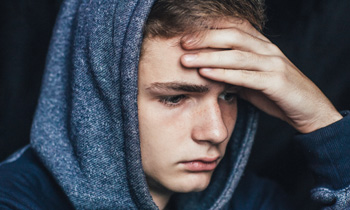
Aging and depression
The effects of aging can sometimes lead to depression, but there are effective ways to prevent and treat depression later in life.
Depression
- Aging and the End of Life
- Aging and Depression
- Aging is often presented as a time for relaxation, meditation, and opportunities to do things that have been postponed while raising families and pursuing careers.
Unfortunately, the aging process is not always so good. Recent health events such as chronic and debilitating health problems, the loss of friends and loved ones, and the inability to participate in activities that have been reported can greatly affect the emotional well-being of an older person.
An adult may also feel the loss of control over his or her life due to poor eyesight, hearing loss, and other physical changes, as well as external stressors such as limited finances. These and other problems often trigger negative emotions such as sadness, anxiety, loneliness, and loss of self-esteem, leading to social isolation and neglect.
Depression
Another serious consequence is chronic stress or recurrent and persistent depression. Chronic stress has physical and psychological consequences that can complicate an existing adult’s health condition and cause new anxiety.
There is evidence that some of the natural changes associated with aging may increase one’s risk of depression. Recent research suggests that low levels of folate in the blood and nervous system may contribute to depression, mental retardation, and dementia. Researchers also suspect that there may be a link between depression and Alzheimer’s disease.
Whatever the cause, depression can have devastating effects on the elderly. The mortality rate for older men and women suffering from both depression and loneliness is higher than for those who report satisfaction with their health. Treatment programs for depressed elderly patients with heart disease and other serious illnesses are usually longer and less effective.
In addition, feelings of hopelessness and isolation often trigger suicidal thoughts, especially for the elderly, especially those who are disabled or confined to a home.
The danger of daily life
Depression can also have devastating effects on an adult’s health in other ways. Depression can lead to eating habits that result in obesity or, conversely, can lead to significant loss of appetite and decreased energy levels, sometimes leading to a condition known as geriatric anorexia.

Depressed adults also have higher rates of insomnia and memory loss. They also have longer reaction times than usual, which increases the risks associated with cooking, driving, self-medication, and other activities that require full attention.
What you can do
Although old age is an inevitable part of life, stress is not necessarily a factor. Researchers agree that early detection, diagnosis, and treatment may be able to prevent the effects of emotional and physical stress.
Here are some things to keep in mind when dealing with stress in older adults:
Be aware of physical limitations. Encourage an older person to consult a physician before making any changes to his diet or taking on any other new activity that may be of value to him. Respect the preferences of others. Because of advancing age, they may be hesitant to accept new habits or to do things that their peers find very interesting. A psychologist who specializes in aging can help develop an individual’s strategy for coping with stress. Be wise. An elderly person with a weak sense of self may be able to interpret a well-meaning impression as evidence of his deteriorating condition. Some may be offended by any intervention. A psychologist can help friends and family members formulate effective ways to deal with these and other complex issues.
Treatment of depression
Different types of depression require different types of treatment, which may include:
- Lifestyle changes (such as diet, exercise, and social support) prevent and treat symptoms of depression
- treatment of moderate to severe depression.
The fact is, that depression does not just happen. If left untreated, depression can persist for months, sometimes years, and can have a detrimental effect on one’s health.
The good news is that there is a list of medical professionals, health professionals, and services available to support people with depression. There are also many things that people with anxiety can do to feed themselves.
Medications for psychotherapy for depression
Many types of psychotherapy are effective in treating depression in the elderly. These include treatments such as behavioral psychotherapy (CBT) and personal therapy (IPT). Memory therapy also appears to be an effective treatment for depression in the elderly.
CBT supports people with depression to recognize and reverse negative patterns of thinking and improve their coping skills so that they are better equipped to deal with life’s pressures and conflicts.
Psychiatrists can not only help a person recover, but can also help prevent depression from recurring. Psychotherapy can be done individually and with a specialist, in groups, or online.
Medications for depression
If you have moderate to severe depression your doctor may prescribe medication for depression, as well as psychiatric treatment. Anti-depressant medications are sometimes given when other treatments have failed or when psychiatric treatment is not possible due to the severity of the condition or lack of access to treatment.
Electroconvulsive therapy (ECT) is sometimes recommended for people with severe, life-threatening depression that has not responded to psychiatric treatment or medication. ECT can only be provided by psychiatrists and specialized facilities.